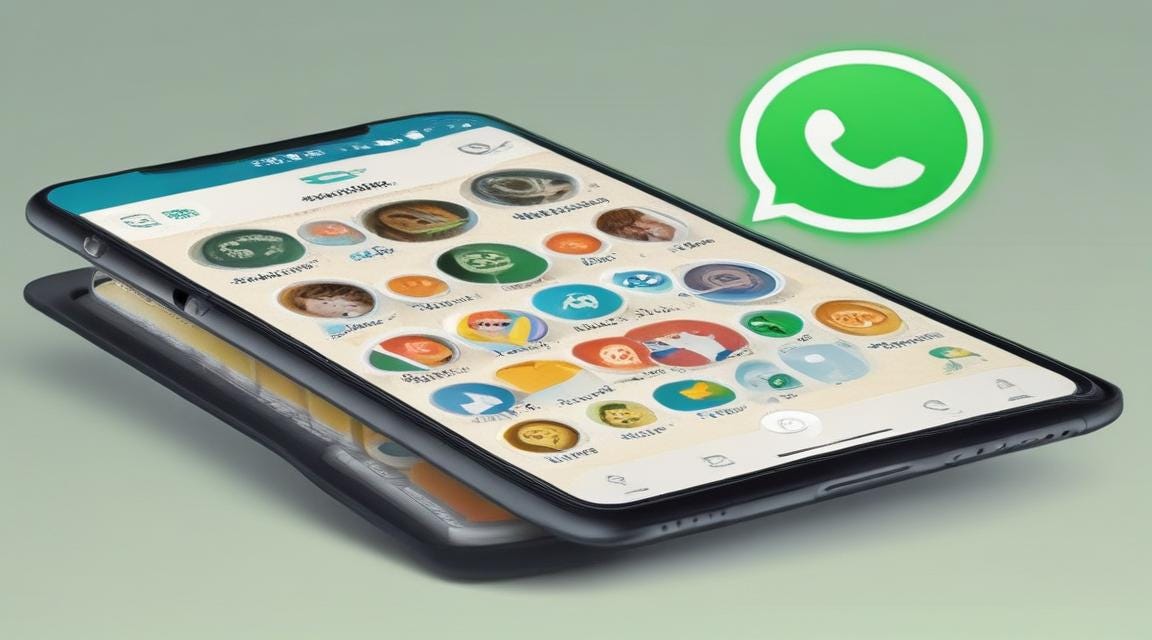What's Up with WhatsApp?
Of User Interfaces that Work, and Apps with Staying Power.
TechMadeSimple is a hand-crafted newsletter delivering in-depth insights into the evolving world of tech and AI. The catalog of 80+ articles covers tips, trends, tools, insights, and strategies to help you stay ahead and succeed. Consider upgrading to support my work! Paid subscribers unlock full access to the catalog, request custom topics or get their queries answered in chat.
To those who have already upgraded—thank you for your valued support!
From Humble Beginnings to a Global Phenomenon
One of the most famous origin stories of WhatsApp - the messaging app for those unfamiliar with it - involves its co-founder, Jan Koum, an Ukranian immigrant to the US. His friends often complained about how expensive it was to call and text from overseas.
This frustration planted the seed for what would later become a revolutionary app.
In 2003, Skype transformed telecom by offering low-cost audio and video calling using peer-to-peer protocols over the internet.
Koum wondered: Why not bring this innovation to messaging?
At the time, international students and visitors to the U.S. struggled with exorbitant charges for international calls and SMS.
Email was a cheaper alternative but lacked the immediacy and personal touch of a call or instant message.
By 2009, Jan Koum and his co-founder, Brian Acton, launched WhatsApp, driven by two core principles:
No ads.
Privacy first. End-to-end encryption was baked in from the beginning, ensuring user conversations, calls and data stayed private.
This unique feature made a huge difference for users globally, eliminating the need for encryption-only text messaging apps like Telegram or Signal.
Privacy and Security: A Key Difference
Consider Slack, a widely adopted messaging app. Slack is not end-to-end encrypted, which means your messages, files, and data are visible at the server level (in the cloud or a datacenter) to those with access to the server—such as Slack employees, contractors, and legally permitted authorities.
This requires you to trust the company’s firewall to keep your data secure.
This decision is a philosophical one made by Slack.1
In contrast, WhatsApp has been encrypted end-to-end 2 since its launch, ensuring that only the people holding the physical devices at either end can view the messages, images, or listen to calls. Any entity intercepting the data flow sees only encrypted data, not the actual content.
This level of privacy is a critical distinction for those concerned with security.
Note: Substack currently provides no information on the encryption methods used for chats or direct messages, so it's unclear whether they are encrypted. Based on this, it’s best to exercise caution when sharing personal information through Substack chats.
WhatsApp has 2.94 billion unique users globally, making it the most widely used instant messaging app. It was acquired by Facebook (now Meta) for $19.3 billion in 2014.
WhatsApp’s adoption in the U.S. has been slower compared to Asia and Europe, but post-pandemic, it has gained significant traction, with 100 million active users as of 2024. While U.S. users spend an average of 3.59 hours per month3 —compared to the global average of 16 hours—engagement continues to rise.
In this post, I’ll dive into WhatsApp’s key features and explain why it’s become one of the most widely adopted messaging apps, offering unparalleled ease of use for free.
Features That Made WhatsApp a Game-Changer
But what makes WhatsApp such a compelling choice? It’s all-in-one feature set? Encryption? It’s seamless handoffs between mobile and desktop? That its user experience is the same regardless of the device or location? The fact that it is free ?
Let’s find out by breaking down WhatsApp’s key features. 4
For those interested in a deeper look and the full story - its monetization strategy, the impact of business features, and the finer details of WhatsApp's privacy policies - consider becoming a premium subscriber.


